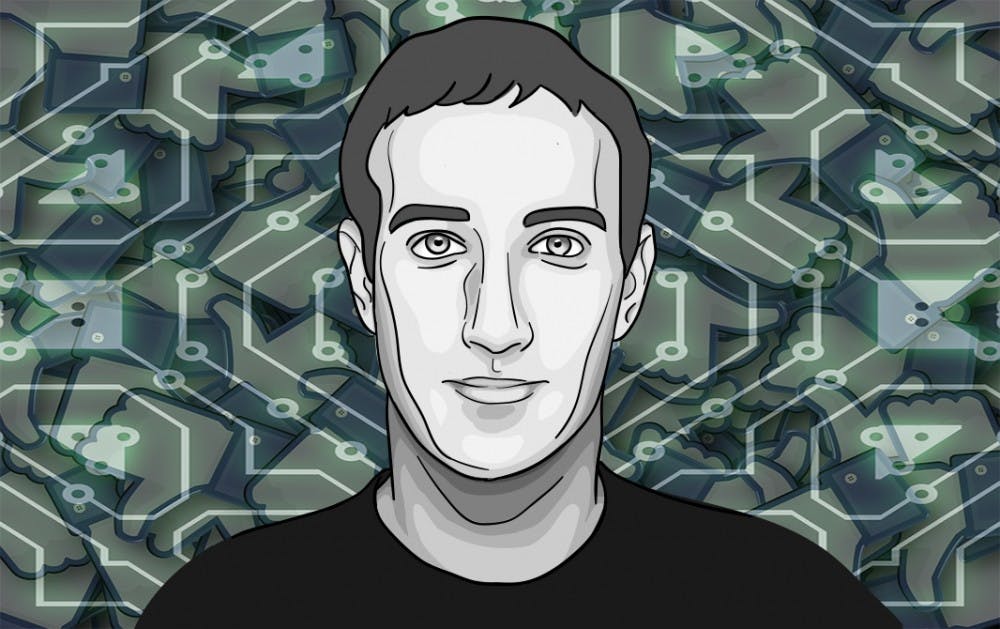Facebook probably knows a lot about you — a fact which has caused ASU professors to advocate for student awareness of social media safety.
If Facebook users click on settings, ads, then advertisements they’ve interacted with, Facebook provides a list of advertisers who are running ads on users' accounts using a contact list they uploaded with these users' contact info. Facebook users can click the "see more" button to view all the companies viewing their accounts.
This feature is not paraded on Facebook, but its something ASU professors would encourage students to be aware of, because anyone could be looking at their information.
Nadya Bliss, a professor of practice and director of the Global Security Initiative at ASU, brings together ASU faculty to work on challenges in security. Their work ranges from national security to privacy.
Bliss said she did not find the recent Facebook Cambridge Analytica scandal surprising.
"We live in this digitally immersive world and you know, if I am on some sort of platform and I click that I accept a policy, there's a certain expectation that the data will be mined," Bliss said.
Bliss said that data mining is happening all the time – from students calling Ubers to watching movies on Netflix.
"I think for the most part, there's nothing wrong with (data mining) as long as there is a sufficient amount of transparency," Bliss said. "I think that's maybe one of the things that was challenging in the most recent Facebook event, because people were surprised as to how much data was being processed and analyzed."
Stephen Carradini, an assistant professor who teaches a social media in the workplace class in the College of Integrated Sciences and Arts, said people can target others on Facebook who they don't have a relationship with, something organizations can take advantage of.
“The goal of Facebook, money wise, is to have the best possible advertising platform, so that when people go to use advertising, they think, okay, Facebook is going to get me the best results," Carradini said. "So you can take demographics, you can pick a location, there's a whole array of categories that you can choose to target your ad buy.”
Students who want to delete Facebook, but can’t because of college clubs and other organization networking, have steps they can take in order to feel more private online. Students can delete old posts that they have liked, delete friends and remove any personal data that they put on their Facebook pages when they first made their accounts and information added throughout their Facebook experience.
To feel safer online outside of Facebook, Carradini said that students can use ad blockers.
“If you go online, you have no ad blockers, no special browsers, no VPN, no sort of external methods to decrease your footprint online, you should expect that you are being tracked at all times,” Carradini said. “No matter what you do, no matter where you go, Facebook has acknowledged that they even track people who don't have Facebook. So if you go online and you have not taken other measures to prevent yourself from being tracked, you are being tracked no matter what you do.”
Pauline Cheong, a professor at the Hugh Downs School of Human Communication, teaches classes on communication technology and culture. She said data leaking and the misuse of data by corporate companies is not new.
"I think the most recent media publicity on the Cambridge Analytica cases illustrates how perhaps widespread the phenomenon is and how it's raised the consciousness for a lot of people on how their data is being leaked, manipulated and shared without much of their consent or knowledge," Cheong said.
Cheong said that if students fear for their privacy but are keeping their accounts because of networking, life will not end if they delete their accounts.
She said that she has had students tell her that they deleted social media and felt left out, but they knew that was an impending symptom due to people’s reliance on these platforms for communication. She said her students ultimately felt a wide sense of relief.
“So I think we need to be mindful and know that there are other avenues of social connections besides social media that will allow us to keep these ties, these events and these organizations alive,” Cheong said.
Carradini said no matter what measure students want to take to feel safer online, he advises them not to expect that anything they do is private online. He said students should be aware that if they want more privacy, they should advocate for policies that allow more privacy online.
"People are very interested in making Facebook less terrible," Carradini said.
Reach the reporter at jlmyer10@asu.edu or follow @jessiemy94 on Twitter.
Like The State Press on Facebook and follow @statepress on Twitter.




